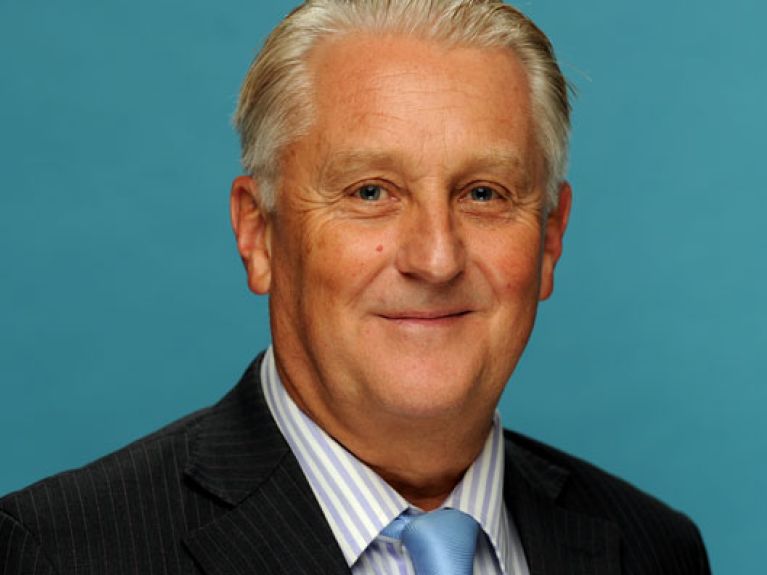Ambassador Christian-Ludwig Weber-Lortsch in Myanmar
German ambassadors present insights into the world of diplomacy and their host countries in the deutschland.de series “Foreign posting”. Part 3: Christian-Ludwig Weber-Lortsch in Myanmar.

Which subjects currently define relations between Germany and your host country?
In February, Federal President Joachim Gauck paved the way for a comprehensive reform and modernization partnership. An office of the Association of German Chambers of Industry and Commerce, the Goethe-Institut and our development partners GIZ and KfW have all set up camp there. We help companies wishing to sell, buy or invest here. We invited Myanmar’s new minister of education, who did her PhD in Göttingen, to Germany with a view to strengthening cooperation in the area of education. Furthermore, we are working with the EU to promote the peace process and a peaceful democratic change in government during the 2015 elections.
Which special ties are there between your host country and Germany? Where would you like to deepen relations?
We are old friends, and this year are celebrating the 60th anniversary of our diplomatic relations. Following independence, we were one of Myanmar’s most important development and economic partners. Today we are trying to support the country’s reconstruction through training, economic development and jobs. 25 years after the fall of the Berlin Wall, we are able to contribute our own experience of transformation. Our political foundations play an important role when it comes to national reconciliation – the buzzwords in this context being the rule of law and federalism.
You have been the ambassador to Myanmar ever since the country opened up in 2011. What has been your personal experience of the developments?
Life in the metropolis of Yangon has become more colourful, faster-paced, more international – but also more expensive. Nonetheless, the city has retained its traditional character, and there are far more pagodas, monks and longyis to be seen than high-rise blocks, police officers or mini-skirts. There are 65 political parties and uncensored media. The transformation is impossible to overlook, as is the still alarming poverty to be found right alongside the glittering facades of new buildings. For people with a euro a day to live on, democracy tends to remain but a fairy-tale dream.
In 2014, Myanmar holds the chairmanship of the Association of Southeast Asian Nations (ASEAN). What role is the young democracy playing, and what sort of progress is this community of states making – with which implications for Germany and the EU?
Myanmar’s first ASEAN summit was a success. Still the community’s “problem child” until very recently, the country has now proven itself to be a competent crisis manager and sincere mediator. The homework needing to be done for the 2015 economic community has made progress. Unlike the EU, ASEAN does not have any supranational structures, so everything has to be negotiated on a consensus basis by the nation-states. Nonetheless, despite historic, ethnic and religious differences, something is being built up here – not only in economic terms. In political terms too, the 600 million Southeast Asians are attempting to preserve their own identities and interests vis-à-vis their overly powerful neighbour.
Often there is a difference between the interior and exterior view of a country . In your personal experience, what needs to be said about Myanmar?
For many people, Myanmar remains a stranger, a friend about whom we know little. The political debate is often reduced to Nobel prize winner Aung San Suu Kyi’s fight for freedom against the military rulers of the time. Yet the “Golden Land” is a highly complex entity, a multi-ethnic country with a proud history, 135 minorities, different languages and religions, as well as marked social contrasts: a rich nation with a poor population. 60 years of civil war have left the country deeply split. The centrifugal forces now have to be overcome so that power and resources can be shared fairly. Federalism is no universal remedy, but it might help to strengthen and integrate the regions and minorities equally.
© www.deutschland.de

